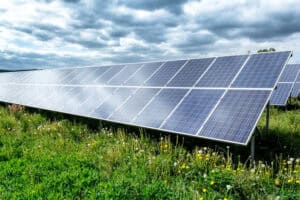Table of Contents
Why should I schedule a solar system inspection?
As we step into 2025, solar energy continues to play a vital role in reducing electricity costs, lowering carbon footprints, and achieving energy independence. But just like any high-performance technology, solar systems require regular checkups to ensure they’re operating efficiently and safely. That’s why you should schedule a solar system inspection in 2025—to protect your investment, your safety, and your energy savings.
Introduction to Solar System Inspections
What is a solar inspection?
A solar system inspection is a comprehensive evaluation of your entire solar setup, including panels, inverters, wiring, mounting hardware, and battery backups if present. It helps identify any issues affecting performance or safety. To schedule a solar system inspection is to schedule success for your solar projects.
Who should perform it and when?
A licensed solar technician should carry out these inspections at least once every 1-2 years. In 2025, with increasing weather volatility and grid demands, learning when to schedule a solar system inspection is more essential than ever.
Rising Energy Demands in 2025
With more households and businesses transitioning to renewable energy, solar systems are under increasing demand. Systems installed five or more years ago may struggle to keep up unless maintained properly. Once you schedule a solar system inspection for your aged systems, you’ll find that the efficiency of your solar systems will be operating like they did when they were first installed.
- More reliance on solar: High energy prices and incentives have increased solar usage.
- Older systems at risk: Aging components might not meet modern energy requirements.
Hidden Damage and Wear Over Time
Most solar panel damage isn’t visible from the ground. Microcracks, weather exposure, and gradual wear can reduce output dramatically without any outward signs, meaning that the only way to detect some of these issues is to schedule a solar system inspection.
- Weather damage: Hail, snow, and UV exposure all degrade panel surfaces.
- Wiring faults: Loose or corroded connections can cause drops in efficiency—or worse, fires.
Optimize System Performance
Inspections help fine-tune your system to run at peak performance. Even small tweaks, like inverter settings or panel angle adjustments, can lead to measurable increases in output.
- Boost energy production: Get more from the same number of panels.
- Maximize ROI: Faster return on your solar investment.
Safety Concerns with Uninspected Systems
Unmonitored solar systems can pose serious safety hazards, especially if wiring has degraded or if pests have compromised connections.
- Electrical risks: Unseen faults can lead to shorts or fires.
- Code compliance: Stay in line with updated 2025 building and electrical codes.
Technological Upgrades and Compatibility Checks
The solar tech landscape evolves fast. An inspection helps you determine if your system is compatible with the latest inverters, batteries, or monitoring software.
- Future-proof your system: Avoid being left behind by tech advancements.
- Smart integration: Ensure your system works with smart home setups and apps.
Warranty and Insurance Compliance
Many warranties and insurance policies require proof of routine maintenance. Skipping inspections could void coverage when you need it most.
- Maintain eligibility: Keep records up-to-date.
- Support for claims: Easier approval of repair or replacement requests.
Prepping for Seasonal Changes
From summer heat waves to winter storms, each season presents unique challenges for your solar system. An inspection ensures you’re ready for what’s ahead.
- Before extreme weather: Preventative action beats emergency repairs.
- Year-round reliability: Keep producing power regardless of the season.
Property Value and Resale Benefits
Planning to sell your home in the near future? A recent inspection and clean bill of health on your solar system can increase buyer confidence and home value.
- Inspection report as a selling point
- Higher appraisal value for energy-efficient homes
Grid Connectivity and Local Regulations
Grid-tied systems must comply with utility guidelines and regulations. Inspections ensure proper synchronization and avoid penalties.
- Check net metering accuracy
- Stay compliant with evolving local laws
Early Fault Detection Saves Money
Catching a problem early—before it escalates into something major—can save thousands in repair or replacement costs.
- Avoid major breakdowns
- Extend lifespan of your equipment
Incentives and Rebates for 2025
Many states and utilities offer rebates or tax incentives for solar owners—but some of these benefits require documented inspections.
- Qualify for rebates
- Document system performance for tax credits
What to Expect During an Inspection
JMS Energy’s technicians follow a detailed checklist including:
- Visual inspection of panels
- Electrical system testing
- Performance diagnostics
- Mounting hardware assessment
- Inverter and battery checks
A full report with photos and recommendations is provided after each inspection.
Why Choose JMS Energy for Your Inspection
At JMS Energy, we pride ourselves on exceptional service, certified technicians, and deep experience in both residential and commercial solar systems.
- NABCEP-certified professionals
- Trusted by thousands of customers since 2010
How to Schedule Your 2025 Solar System Inspection
Ready to protect your investment? Scheduling is simple:
- Contact JMS Energy.
- Choose your preferred time
- Prepare your system details and access points
FAQs About Solar System Inspections in 2025
1. How often should I inspect my solar system?
Every 1-2 years, or immediately after major weather events.
2. What if my system seems to be working fine?
Hidden issues might still be present. Regular checks ensure continued performance and safety.
3. How long does an inspection take?
Most inspections take 60-90 minutes, depending on system size.
4. Is the inspection covered by warranty or insurance?
Some warranties and insurance policies require or reimburse inspections—check your terms.
5. Can JMS Energy inspect commercial systems?
Absolutely. We service both residential and commercial installations.
6. What’s the cost of an inspection?
Prices vary by system size—contact JMS Energy for a free quote.
Conclusion

Why you should schedule a solar system inspection in 2025 is clear: it protects your investment, ensures safety, boosts performance, and keeps your system compliant with incentives and regulations. Don’t leave your solar savings to chance. Trust JMS Energy to keep your system running like new




